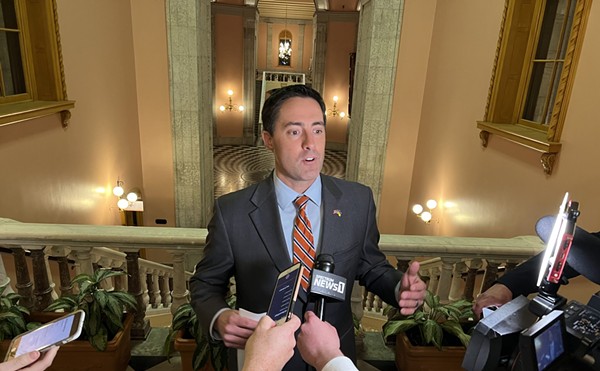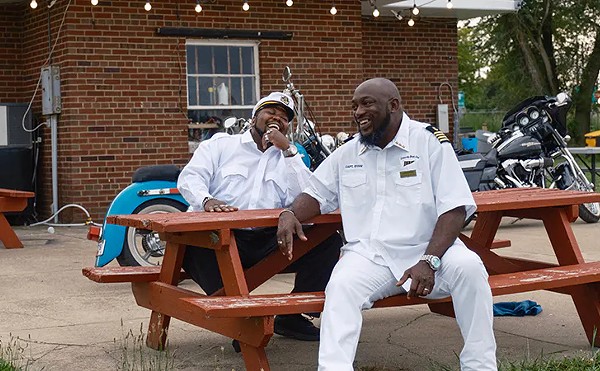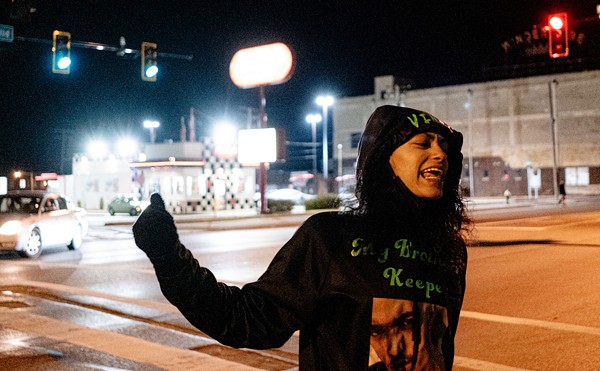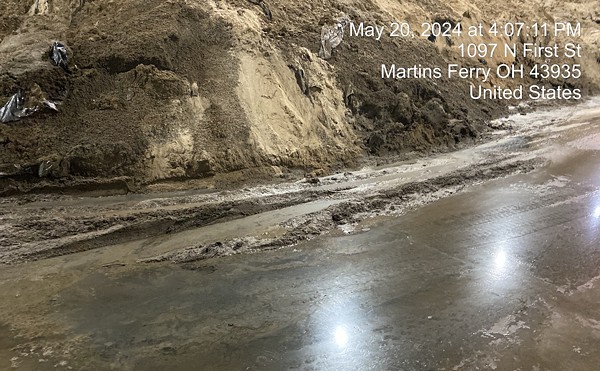
Gorman, a nun at the Sisters of Notre Dame, the charity that owns the building, was warmed by what seemed like a new community anchor. Amish donated help for the shelter's trim and doors. Geauga Hardwood offered laminate flooring. Annie Payne, a Chardon-based interior decorator, designed the shelter's bedrooms and lobby.
In fifteen months, twenty men were given beds to sleep in, meals to eat, links to jobs and permanent housing.
"During that time, we've seen churches, businesses, and many individuals also begin to support that program," Gorman said. "And we see how extending that program to the women could be a real support here in Geauga County."
The Sisters and GFRM found their next shelter on twenty acres of land around an abandoned preschool building off Auburn Road in Munson Township. Because the land the preschool is situated on is not zoned for shelter housing, both organizations needed approval by Munson Township's Zoning Board to remake the building into a transitional shelter for roughly eight to ten single women.
Yet, the Sisters were thrown a curveball: many in Munson Township viewed the shelter as an incoming wave of societal degradation. The petition for a variance was delayed, the board decided, until this June.
“People in Munson and the surrounding areas pay BIG MONEY to keep their kids and families away from the dredges of society," Munson resident Richard Spanish posted on Facebook. "And the Sisters of Notre Dame think it's a good idea to fill an old barn with homeless, most likely drug-addicted hags???!!"
"You do not want the inner city coming to our county," Sam Culper posted. "This will be like a cancer."
The impetus to build what would be Geauga County's second homeless shelter, was, in the mind of its backers, steeped in a mixture of good faith intentions and response to hard data. Because a great majority of the county comprises owner-occupied homes, few resources exist to accommodate those that can't afford one, or experience sudden life changes.
A 2021 county assessment found that the Geauga Metropolitan Housing Authority could only provide public housing for 165 county residents, or less than .01 percent of its population. (One nonprofit suggested there were, a few years back, "over 700 people" on waiting lists.) Housing was the second most addressed topic in a recent "Unmet Needs" report by Geauga County Jobs & Family Services.
"We have little to no options for our homeless people," GCJFS' 2019 survey and review read. "There is no housing for homeless in Geauga County."

It's just this lack of visibility that fueled Nathan Long, GFRM's executive director, into pursuing a second shelter partnership with the Sisters of Notre Dame. (They lease the property.) After a decade as a pastor in Geauga County, Long had felt he'd come to know the church's position as a community anchor. When the need to petition for a variance came up in January, Long was unflappable. He knew what was coming.
"That’s a concern that we hear over and over that we’re going to bring Cuyahoga County to Geauga County," he told Scene. "But we have to meet needs here. We have people that need help right here."
On Tuesday evening, Long, Sister Gorman, and a panel of faith leaders presented their case to hundreds of Munson residents at the Munson Town Hall on Auburn, down the road from where the women's shelter could open later this year. There were so many cars parking in the Town Hall's lot that visitors had to park two blocks north.
For roughly a half hour, Long, dressed in a pinstripe black suit and greying goatee, spoke almost mournfully to a packed house, pockmarking his plea with past anecdotes and verses from the Book of Matthew. Single women need a bed just as single men do, he argued. Those it would seek to service deserve the chance to rebound.
"Meeting Nathan Long saved my life," Anthony Mira, 35, who stayed for six months at the men's shelter on Washington, recalling days reciting Bible verses and doing daily chores. "I remember that day. Wow, it was cold out. I was struggling with withdrawals and drug problems. I figured, at least I have another week to figure it out."
He added, "I look back at that now as one of the biggest blessings of my life."
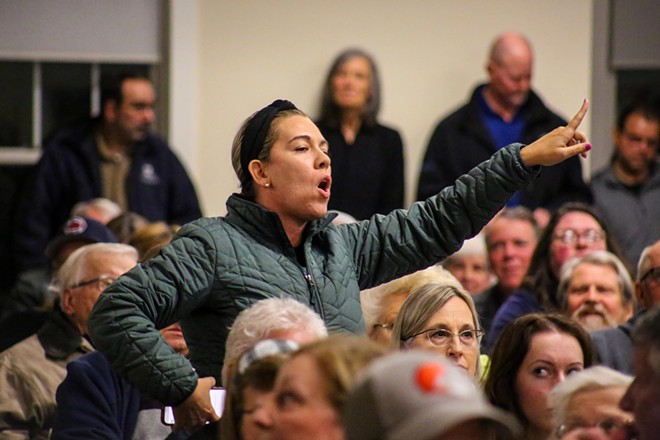
"This is our children. This is our streets! This is my family, this is my husband," a Munson resident in her mid-forties cried out. "Right now, I am by myself raising two children. I'm going to probably be putting a target on my back."
Long echoed his sentiment that people can change. "When they come to us, the high percentage of people that are committing crimes," he responded, "once they enter into a structure, that reduces it."
"No! No! No!" the crowd groaned.
"Oh my god," one person shouted.
"No!" one woman cried. "It brings crime from the inner city!"
As the town hall came to a head, many in its audience seemed to rally around a common fear: We've been here, in our homes, for decades—and we don't plan on giving that up, or allowing our homes' values to depreciate. "We are here to live a peaceful and quiet life," one woman in her fifties shouted.
"What about the safety of the students, like 800 to 1,000 feet away from the shelter," one woman said. "When you have residents leaving the facility! Those who have access to weapons. They have access to drugs."
"Every other resident in your town has that access," Long rebutted.
"Yeah, but you're talking about the residents being homeless—drug problems, mental health problems. And we all know all the school shootings usually revolve around mental health."
Long pivoted. "I don't think there is one incident throughout the United States of a female doing a mass shooting," he said.
At that, the crowd went ballistic.
"I wish people could talk like fucking adults," a 31-year-old resident living on Auburn told Scene. "This," he said, "this is every town in America."
Subscribe to Cleveland Scene newsletters.
Follow us: Apple News | Google News | NewsBreak | Reddit | Instagram | Facebook | Twitter | Or sign up for our RSS Feed





